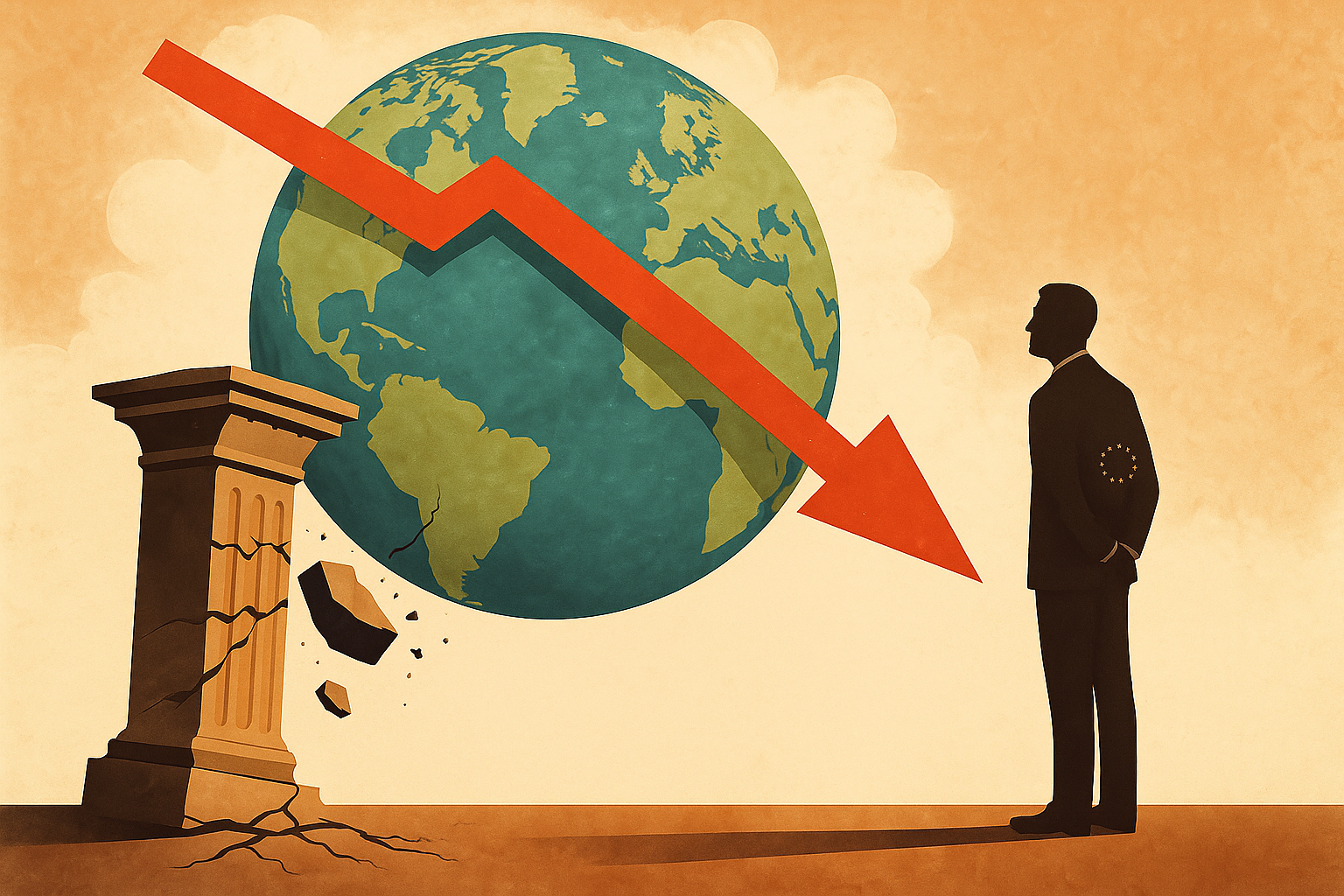European Russophobia and Europe’s Rejection of Peace: A Two-Century Failure
Europe has repeatedly rejected peace with Russia at moments when a negotiated settlement was available, and those rejections have proven profoundly self-defeating. Read more

By Hon. Mark Simmonds, Former Undersecretary of State for the UK Foreign Office
At a time of growing global uncertainty and polarization, it can often be difficult to pinpoint the specific moments that will have the most pronounced impact on the long-term strength of our international system. Yet, amid an avalanche of geopolitical disruptions and diplomatic tension, there is one concerning trend that threatens to undermine multilateral growth and progress far more than others: the rapid decline of global development programs and initiatives.
As climate risks and economic fragility accelerate, a recent report from the OECD now projects a fall in official development assistance of nine to seventeen percent in 2025, after a nine percent drop in 2024. While many may look to the United States as the leading force behind this dramatic decrease in foreign development aid, the reality is that countries across the Global North, and particularly in Europe, have put less focus on the emerging markets and burgeoning populations who need support the most.
Here in Britain, the government has announced a further reduction of aid to 0.3 percent of national income by 2027. At the same time, a growing share of reported aid is now being spent domestically on supporting refugees, nearly twenty eight percent in 2023, which has disrupted long term development programming overseas. Of course, addressing the humanitarian needs of vulnerable populations here must be a priority, but doing so at the cost of Britain’s efforts abroad is simply not sustainable.
We have seen what sustained partnerships can unlock. We have also seen the cost of hesitation and exclusion. When Europe shrinks from its global responsibilities and looks inward, instability fills the space. Our strategic interest and our values point in the same direction. We must recommit to practical cooperation that enables Global South countries to deliver resilient growth and better lives for their citizens.
Consider energy. Across Africa, about one hundred and ten billion dollars is set to be invested in energy this year, with a minority flowing to clean technologies. That level and balance will not put the continent on track for its goals. Encouragingly, access to electricity did improve in 2024 after the first global setback in decades. Yet hundreds of millions still live without reliable power. The gap remains an economic brake and a social fault line. Reliable, consistent energy supply does more than light homes – it enables manufacturing to take root, creating jobs that anchor local economies and reduce the push factors driving irregular migration to the EU and UK.
Europe has the means to act, such as through the EU’s Global Gateway initiative which aims to mobilise up to three hundred billion euro between 2021 and 2027 for sustainable, high-quality projects that meet partner country priorities. EU funding should also be carefully aligned with Africa’s own priorities, including those articulated by key development finance institutions such as the Trade and Development Bank (TDB) and the Africa Finance Corporation (AFC), and wherever possible, coordinated with other public and private funders to mitigate risk and multiply impact.
Beyond the moral implications, this is a question about growth, markets and security: every euro or pound wisely invested in resilient infrastructure in developing countries generates multiple euros or pounds in net benefits through avoided losses, extended service life and wider productivity. That is a return profile any finance minister would recognise.
So what does wise investment look like in practice? Regional grids that connect renewable generation and industry; primary health systems that catch disease early with digital diagnostics; value chains that add local processing to critical minerals and agricultural products; and affordable financing pipelines for SMEs, the engine of economic growth across much of Africa. Initiatives like Mission Three Hundred, a multi partner push to bring power to three hundred million Africans within six years, signal the scale of ambition the world now needs to match with capital and execution.
We also need to listen to entrepreneurs closest to the problem. Grassroots innovators are already building solutions that work at community level and can scale commercially with the right backing. The Zayed Sustainability Prize offers a useful lens: since 2008 it has recognised 128 winners whose projects have improved the lives of more than four hundred million people worldwide. That record shows how targeted recognition and catalytic support can move ideas from pilots to mainstream provision.
Just recently, the Prize announced its finalists for 2026, selecting innovative solutions that are supporting vulnerable communities and enabling sustainable progress around the world. Unsurprisingly, many of the companies being considered for the $1 million USD award are operating in Africa, including Drop Access from Kenya, Health Learners from Zambia, IRIBA Water Group from Rwanda, and INMED South Africa.
Whether it's expanding access to safe drinking water with solar-powered distribution systems, improving food security through sustainable fish farming strategies, or replacing traditional cooking fuels with LPG to protect forests and improve indoor air quality, these companies represent the incredible power of local entrepreneurship across Africa. They offer yet more examples of how targeted and flexible funding can transform grassroots enterprises into industry leaders and drivers of inclusive growth.
The UK and Europe should help such models scale, because the alternative will carry a significant cost at home. Fragile health systems mean outbreaks that cross borders. Power shortages mean lost manufacturing and lost opportunity. Water stress fuels displacement. Lack of economic opportunity drives migration pressures. None of this is abstract. It shows up in supply chains, in migration flows, in security budgets, and in our everyday lives. Now is the time to act with ambition and cut these problems off at the source.